Editors’ tributes on the Guardian’s 200th birthday: the full list
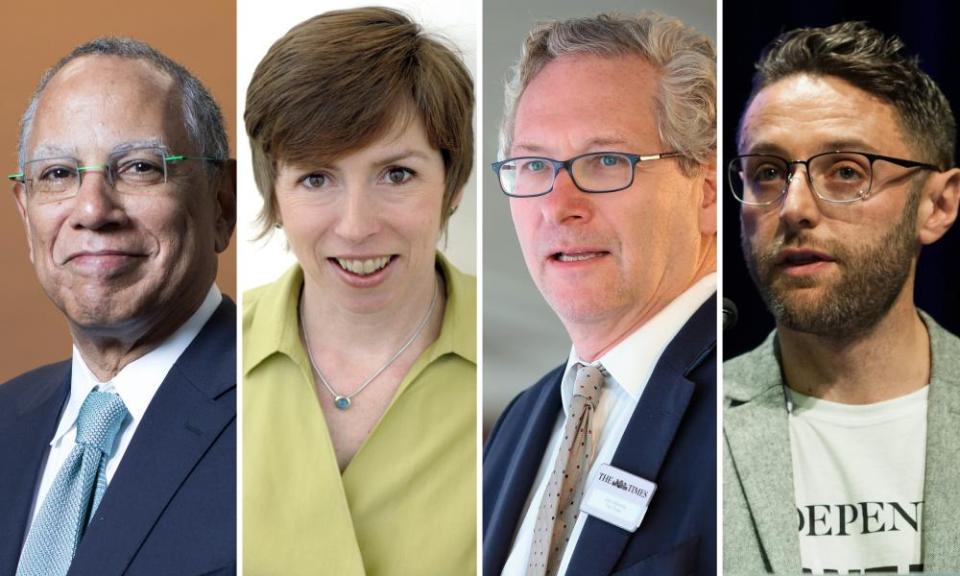
Editors around the world have sent in tributes to the Guardian to mark the 200th anniversary of the newspaper’s first edition on 5 May 1821.
Dean Baquet, executive editor, the New York Times
There are many great things that can be said about the Guardian. But to me what it accomplished is becoming a truly great investigative paper willing to take on the most ambitious subjects – big government, big tech, the surveillance state. It forced us all to lift our game and it made us all better.
Wolfgang Krach, editor, Süddeutsche Zeitung
In 2016, the editorial team of the Süddeutsche Zeitung had come into possession of a large number of documents about clandestine offshore dealings from the archives of the Panamanian law firm Mossack Fonseca. Considering the vast amount of data that needed to be sifted through and analysed, we realised that, looking for support, we would only be able to rely on the most trusted of colleagues. It was clear from the start that the Guardian would be an ideal partner in this. The resulting international coverage, coordinated by the International Consortium of Investigative Journalists (ICIJ), became known as the Panama Papers, one of the most impactful scoops in both our papers’ histories that finally was awarded a Pulitzer prize.
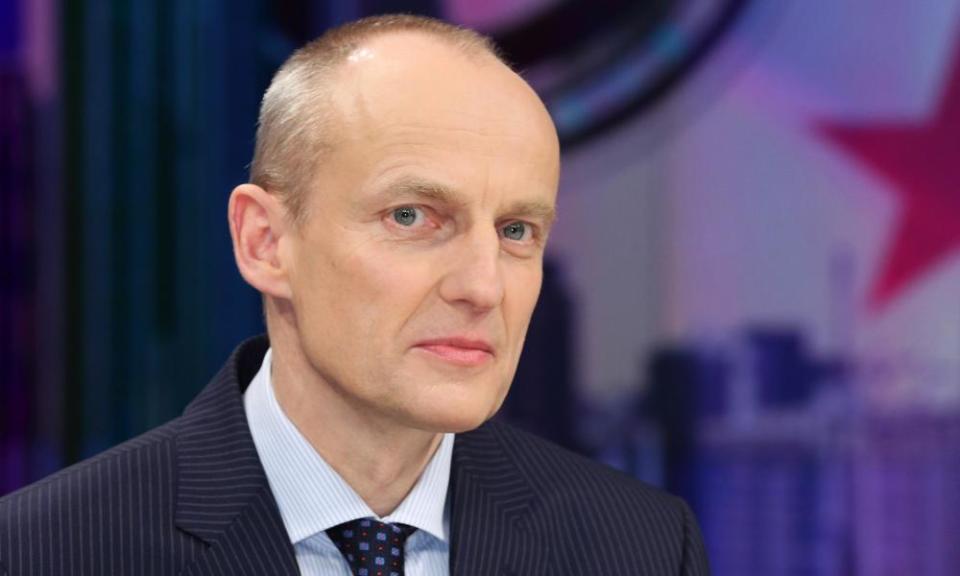
In a rapidly changing media environment, the Guardian has successfully held on to the non-conformist ethos of its founder, John Edward Taylor. Giving voice to liberal and democratic values, it has shown how to report the world’s news and how to deal with complex societal issues in a principled way, without being hampered by narrowly delineated party politics. Its blend of serious writing, lightness of touch and gamechanging design both online and in print represents the best that Fleet Street tradition has to offer.
The Guardian has consistently been a model of journalistic integrity. Its character, as CP Scott wrote in his centenary essay in 1921, is “the slow deposit of past actions and ideals”. We at the Süddeutsche Zeitung measure our own work against this strength of character, as well as the standards our British colleagues have been setting for the past two centuries. We share these standards and ideals and are therefore looking forward to our next cooperation.
Fran Unsworth, director, BBC News
The Guardian’s history is a rich tapestry of investigative journalism, holding power to account and putting their readers at the forefront of everything they do. 200 years is an extraordinary achievement and a tribute to the enduring value of high-quality journalism that adds to the broad spectrum of views across the national conversation.
Jérôme Fenoglio, director, Le Monde
For any newspaper that aims to base the quality of its articles on the freedom of its journalists, the Guardian is a compass. The trust that underpins this news organisation is without doubt the finest example of virtue put at the service of information, a major asset of our democracies. While Le Monde extends, step by step, its long history of independence, by creating new mechanisms to protect its editorial staff, it is clear that it looks to the model of its London counterpart as an ultimate objective.
In the troubled landscape of contemporary media, the Guardian is not just a landmark. It’s also been an ally with which we have been happy to partner on several projects – the Europa supplement, the consortium around major revelations like WikiLeaks – which make our editorial staff stronger, our journalism more relevant, our commitments more convincing. Beyond borders and languages, these editorial alliances strengthen our democracies, bring our citizens closer together and reinforce our common causes. Le Monde will always be proud to take part in these collective undertakings in the general interest, alongside its great elder which is celebrating its 200th anniversary today.
Ian Katz, director of programmes, Channel 4
The first time I got sent on a story for the Guardian, I checked in for the event and heard one of the PRs running it turn to a colleague and whisper: “Guardian … here comes trouble.” It was a moment that filled me with intense pride, even though the scope for causing trouble at whatever opening of an envelope I had been sent to cover was distinctly limited. During 23 years on the paper I felt it every time the Guardian made new enemies, from calling out the corruption of Jonathan Aitken and Neil Hamilton, to exposing the scandalous practices of some of our own colleagues, via trying to give people around the world a way to influence a US election through the voters of Clark County, Ohio (an episode not universally regarded as one of the Guardian’s most glorious moments).
Related: ‘Stuff of legends’: editors around world salute the Guardian on 200 years
Since leaving the Guardian, I’ve admired from afar as the paper made more wonderful trouble – for over-reaching intelligence agencies, for super-rich tax avoiders, for a Home Office shamefully trying to expel descendants of the Windrush generation. The measure of a paper’s true independence is the range and power of the enemies it makes. The Guardian has amassed a formidable – and formidably eclectic – collection of them over 200 years. Please keep making them.
John Witherow, editor, the Times
A free press is vital to a democratic society, shining a light into dark corners and holding the powerful to account. A free press is a diverse press, one in which many voices are heard. The Times and the Guardian have differed over the years, often quite fundamentally, on everything from politics to digital strategy, but they share a commitment to a principle set out by the Guardian’s great editor and publisher CP Scott when he marked the paper’s centenary in 1921: “One of the virtues, perhaps almost the chief virtue, of a newspaper is its independence. Whatever its position or character, at least it should have a soul of its own.” Much about today’s Guardian might be strange to Scott, but he’d have no difficulty in recognising that, as it celebrates its bicentenary, his paper still has a soul of its own. Long may it continue.
Roula Khalaf, editor, the Financial Times
Congratulations on such a significant milestone. The role of quality media is to hold the powerful to account and to deliver the facts to readers – the Guardian does this and has done since its inception. Here’s to many more years of hard-earned headlines and true journalism.
Christian Broughton, managing director, the Independent
Sometimes it takes a tragedy to make the value of high-quality journalism clear. In my lifetime, I think of Iraq, the climate crisis, the rise of the arch-populist Trump, and of course Covid. Just over two centuries ago in Manchester, the Peterloo massacre was one such incident. It was not the first, and the current pandemic will not be the last. While there are difficult truths to be reported, we will need journalists to do their work, and readers who recognise its value.
Alison Phillips, editor, the Daily Mirror
Many congratulations to you all on your 200th anniversary. We have often found ourselves reporting on the same stories, highlighting injustices and campaigning for similar causes. It’s just you do it with more words and way longer sentences!
The importance of trusted, quality journalism which refuses to shy from the subjects which the rich and powerful would rather not discuss can never be underestimated.
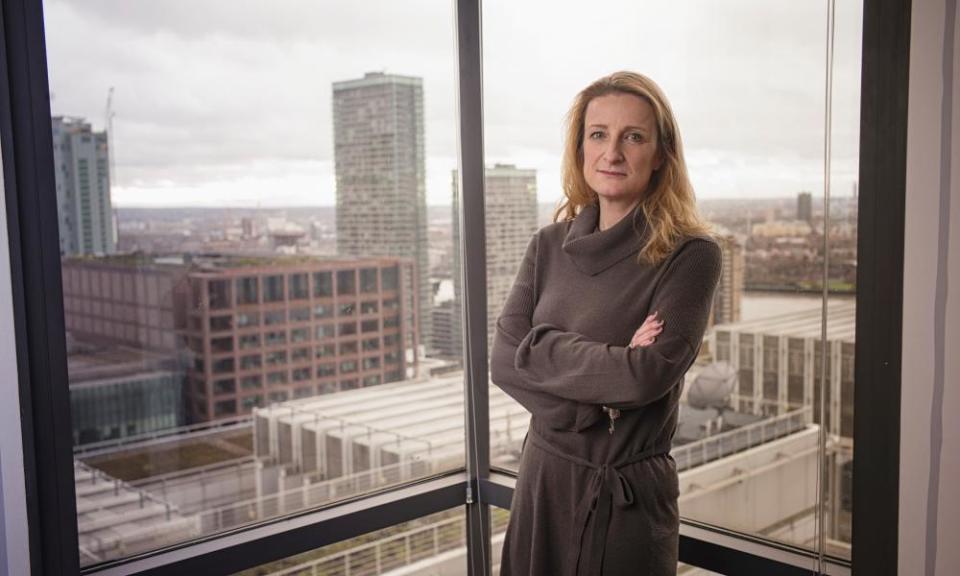
Yet the challenges for a news brand to sustain that trust and quality have never been greater. The Guardian should be applauded for having done just that.
Jordi Juan, editor, La Vanguardia
It is major news that a newspaper is celebrating its 200th anniversary. Reaching such a significant milestone reflects that its headlines have continuously and successfully connected with its readers. The Guardian is an example of independent and committed journalism, and for this very reason it has been at the forefront for so many years. Here in La Vanguardia we strongly identify with your success having recently celebrated our own 140th anniversary. Today, more than ever, is a moment to strive for more and better journalism. Congratulations. Long may it continue!
Marty Baron, former editor, the Washington Post and the Boston Globe
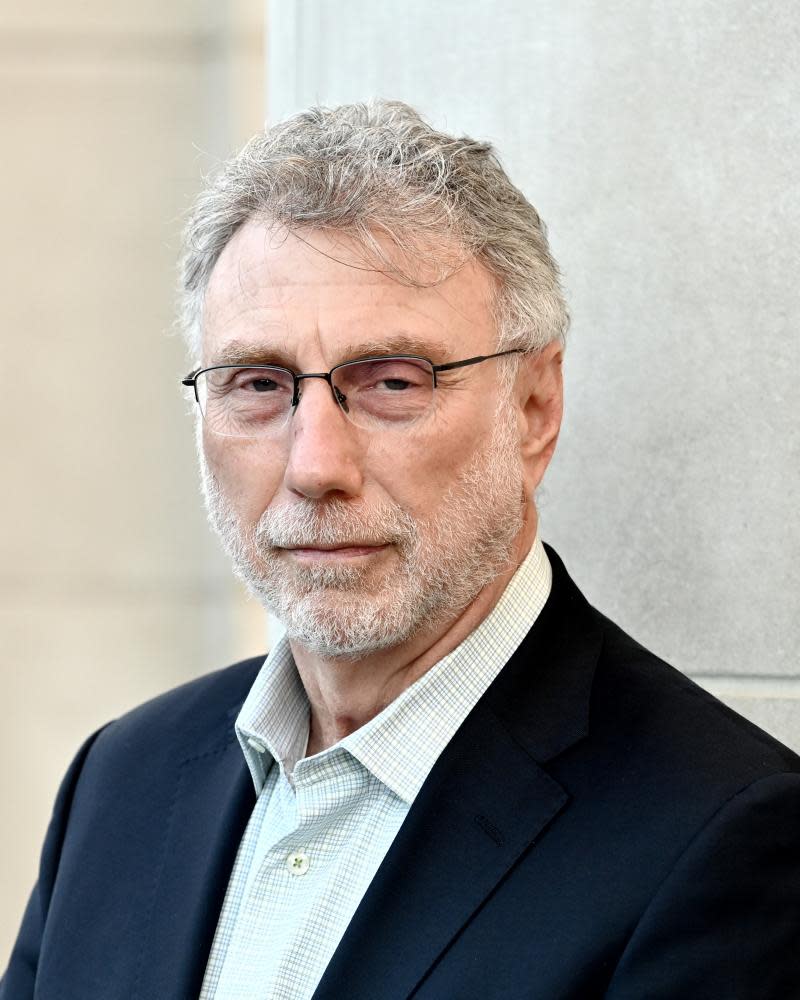
When you have been around 200 years as a media institution, that means you have something enduringly valuable to offer the public. The Guardian surely does. Its spirit of vigorous, independent, public-spirited journalism is a source of admiration and inspiration. Congratulations to the Guardian on its bicentennial, with deep appreciation for its commitment to democracy and an informed citizenry.
Tom Grundy, editor, Hong Kong Free Press
Since I first picked up a discount copy of the Guardian at university in 2003, I’ve watched how the paper survived and innovated its way through the rise of the internet, a never-ending media funding crisis, and the latest battle over “fake news”.
In 2015, I launched Hong Kong’s first crowdfunded media outlet, and it is true to say that Hong Kong Free Press would not exist without the Guardian. We were inspired by its principles of holding the powerful to account and being a voice of the voiceless. And let’s say we “borrowed” the Guardian’s funding model whereby the content remains free to access, but is paid for by readers who can afford to support us.
Somehow, this 200-year-old paper manages to constantly reinvent itself whilst maintaining its identity and broadening its readership. Wishing the Guardian team a happy birthday from Team HKFP!
Christian Jensen, editor, Politiken
The Guardian was born as a response to injustice and as a consequence of the Peterloo bloodshed back in 1819. Let’s call the foundation of the newspaper two years later a historical corrective: born out of an ambition to fight suppression, to contribute to the development of democracy, and to stand as an inevitable corrective to the development of liberalism and capitalism.
And the beauty of it: the Guardian is still doing exactly that.
It is among the leading voices in the fight against manmade climate change, social and political injustice, not only in Manchester and England, where the journey started, but worldwide. This journalistic lighthouse is where so much of the world finds inspiration when we – once again – discuss the need to correct a capitalism that has set a course for climate disaster. This is where so much of the world finds inspiration when we discuss democracies that could end up dying in the dark as democratic thinking comes under pressure and privacy is eroded by the sort of surveillance that the Guardian and the former NSA analyst Edward Snowden were among the foremost to reveal.
Danish Politiken was born out of the same mindset in 1884, the same ideals and aspirations. Or as our founder Viggo Hørup put it that year: Politiken’s mission is “to move us from worse to better, from injustice to justice, from justice to more justice, and from old to new”.
This is why we are on a shared mission with The Guardian. This is why we have cooperated for so many years, and hopefully still will do in the decades and centuries to come.
Congratulations.
Paul O’Neill, editor, the Irish Times
Simon Winchester, reporting in the Guardian from Derry the day after Bloody Sunday in 1972, wrote simply that “those of us at the meeting heard only one shot before the soldiers opened up with their high velocity rifles”. It was impossible to be absolutely sure, he added, but they “may have fired needlessly into the huge crowd”.
Not for the first time the Guardian’s reporting of violence on this island, straightforward unvarnished witness testimony that eschewed official narratives, would contribute to a change in British opinion about Ireland. Not least an awakening of largely dormant interest in a troubled neighbour, but also a questioning of government policy.
In the aftermath of the Croke Park massacre of civilians by troops in Dublin and of the brutal Black and Tan atrocities in the early 1920s, the liberal writer JL Hammond for the Guardian also contributed to another shift in public opinion in Britain, one that would help ultimately to lay the basis for political acceptance of Irish independence.
Winchester and Hammond represented an important thread of continuity in reportage, one that strikingly echoes John Edward Taylor’s own celebrated report on the Peterloo massacre in which 18 demonstrators were shot dead by the authorities. “I affirm,” he wrote, “from actual observation, that not the slightest breach of the peace had been committed, or appeared, as far as I can judge, likely to take place.”
“One of the virtues, perhaps almost the chief virtue, of a newspaper is its independence,” the Guardian’s legendary editor CP Scott wrote. That independence – of mind, and from commercial or political masters – has made kindred spirits of the Guardian and the Irish Times. Both share a journalistic ethos and a related corporate structure based on trust ownership, which acts as guarantor of the values and orientation enunciated so clearly by Scott.
The formation of the Irish Times Trust in 1973 has strong echoes of the Guardian’s Scott Trust. Imitation, they say, is the sincerest form of flattery. The objective in each case was to provide a secure framework for the continued publication of robustly independent journalism, driven by strong commitments to democratic ideals, social justice and high editorial standards (which, admittedly, we do not always attain).
Of course, any tribute to this venerable institution would not be complete without acknowledging the role of the Grauniad’s – oops – typos in brightening our days (and making us feel a little better about our own). A favourite was the inadvertent rejection of the orthodox view that Catholic emancipation in Ireland was driven by the great nationalist leader Daniel O’Connell. The Guardian attributed this achievement instead to the singer Daniel O’Donnell. Two Irish voices but very different tunes, and each found in the Guardian.
Javier Moreno, editor, El País
For many Spanish-speaking readers and journalists, on both sides of the Atlantic, the Guardian’s 200th anniversary seems like a miracle. This is no doubt the case in the English-speaking world, too, although perhaps for different reasons – ones that other people, with more knowledge and authority than I, will be able to summarise on the occasion of this bicentenary. But for us, accustomed as we are to all kinds of historical divides and discontinuities, dictatorships, democracies that are always at risk, weak civil societies and business leaders who are too keen to cosy up to the powers that be, we can’t help but admire the fact that a daily that was founded in Manchester in the 19th century has become one of the most influential global voices, whose investigations have revealed the serious wrongdoings of governments and major companies, both inside and outside the UK.
This is, in the first place, the work of its journalists, many of whom are the stuff of legend. But it is likely that all of that talent would not have yielded such a crop had it not been for the determination of the founders of the newspaper, who also had the courage and the vision to transform the company into a trust that was exclusively dedicated to ensuring that the Guardian could produce the best journalism while protected from all kinds of political and commercial interests. As well as admiration, this also creates a notable cognitive dissonance among journalists working in Spanish.
The efforts of the latter in recent decades to elevate the quality of their work and aim for the best international practices – of which the Guardian is a standard-bearer – end up on too many occasions running into the weakness of the business structure that should support them; or owners who believe they have the right to interfere with what their newspapers publish; or violence organised by the state or the organised violence that the state cannot or will not protect them from – Mexico, for example, has one of the highest murder rates among journalists in the world.
The suggestion that each society has the government that it deserves is a cruel and unfair idea. As is the idea that each society has the newspapers it deserves, and of course, millions of Spanish-speaking citizens and readers do not have the newspapers they deserve – they are not to blame. There is also hope to be found here: the Guardian’s trust “declares a subsidiary interest in promoting the causes of freedom in the press and liberal journalism, both in Britain and elsewhere”. I briefly knew Peter Preston, once he had already stepped down as editor, and also Katharine Viner, who is currently in charge. But it is Alan Rusbridger, an icon for the editors of my generation, with whom I have spent the most time, efforts and reflections. I am a witness to how they, and all of the journalists at the Guardian, give meaning and value to that “and elsewhere” that underpins our hope.
Juan Luis Sánchez, co-founder, elDiario.es
In the most exceptional year of our lives, journalism has been put to the test. The pandemic is certainly not the first challenge of the decade: Covid landed as we were still navigating such institutional bankruptcies as the Trump presidency, Brexit and, in Spain, a series of political and territorial crises, all preceded by the global financial crash. These episodes fully exposed the shortcomings of a type of journalism that had become overly dependent on simplistic audience metrics, lacked the independence required to hold power to account and ended up fuelling threats to democracy, fostering misinformation and compromising on quality.
While we were still trying to get our bearings, the pandemic made us bite the dust again. Journalists are themselves surviving the pandemic, narrating the story of this extraordinary time while fearing for their jobs because of the harsh economic consequences of lockdowns.
However, even in these toughest of conditions, when we were all making negative forecasts for our journalistic enterprises, a part of society has showed that it is there to support us. The pandemic has accelerated the pace of the digital transition and has led to the emergence of a new formula for the relationship between newspapers and their readers – both the Guardian and elDiario.es had already been shaping that model for years. The membership system that we now share is permeating the rest of the sector, with the economic contribution of readers becoming increasingly important.
The renewal of this contract between readers and journalists is the great hope for our profession in these uncertain times. If after the fall of Lehman Brothers we journalists felt cast into the darkness, our self-esteem shaken by a collapse in public trust, 13 years later there are newsrooms in the world where we consider ourselves armed and protected against whatever comes our way. That’s how we feel.
The Guardian has been a beacon throughout this process. It is an institution now marking its bicentennial but it has not compromised on its social values. It has found a financing system compatible with its editorial DNA. It has changed the business to fulfil the mission, not sacrificed the mission to fulfil the business.
Although it can boast a history that goes back two centuries, the Guardian has always treated elDiario.es, a digital media newcomer founded in 2012 and grown from nothing, as an equal partner. That humility and generosity under the leadership of Katharine Viner are also key to its renewed success.
At elDiario.es we have had the pleasure of collaborating with the Guardian since 2016, with a content agreement that allows us to publish the best international stories from the best correspondents and columnists. In addition, we have spent time together sharing knowledge about our projects. I have the feeling that there is much to come: we have the common challenge of European journalism – from outside the EU or from the south of the EU, but yes, European, so that the future of Europe can be told from the institutions of Brussels, but also from the streets of the periphery, where good ideas are sometimes born.
Edwy Plenel, founder, Mediapart
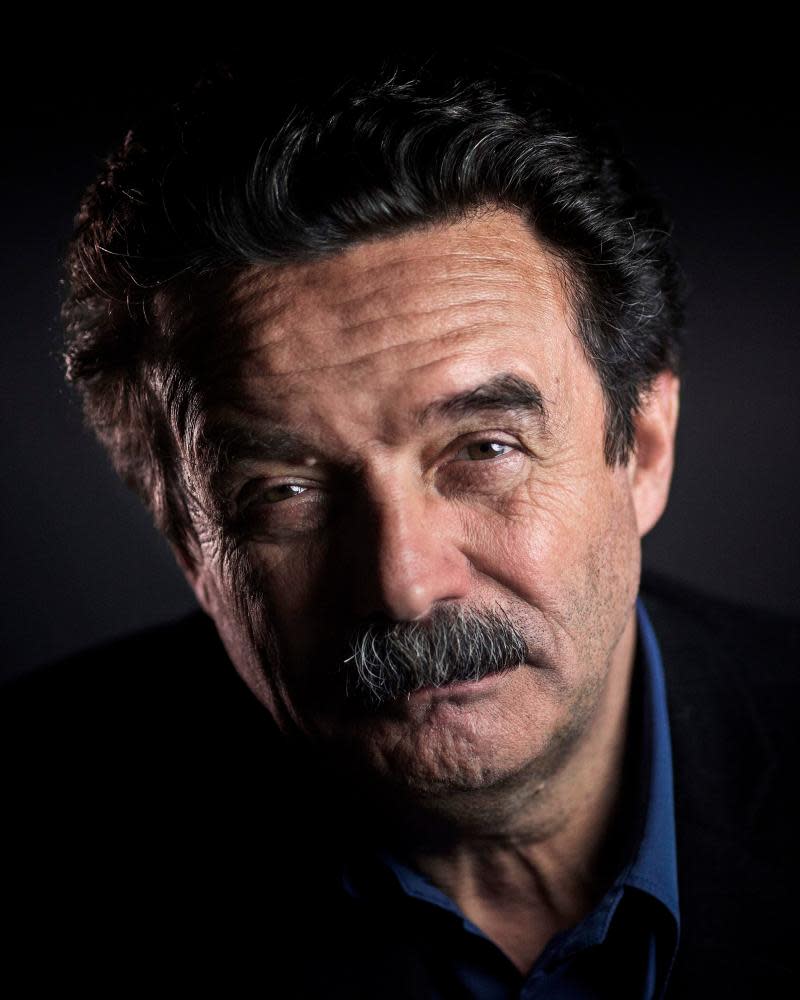
“That things are ‘status quo’ is the catastrophe,” wrote Walter Benjamin in the last century. That warning is more than ever relevant in our current time of fragile democracies, growing inequalities and the emergency of climate change. But habit is not the only threat. It is also, if not above all, blindness; no longer seeing clearly, no longer knowing what direction to take, no longer making sense of things, becoming lost.
This where our profession, journalism, is put to the test. Of course, it is about defending the freedom to criticise, and the diversity of points of view, the plurality of opinions. But, as Hannah Arendt wrote in her prophetic 1967 essay Truth and Politics, opinions can be pertinent and others crazy, some rational, others unreasonable. If it is absolute, their reign can rapidly lead to ruination, whereby nothing is true any more, and the worst becomes possible.
For a common world to exist, we first need the truths of fact, with which to reason and debate. Without these documented and verified reference points we lose both our footing and reality, giving place to lies, fantasies, fear, hate and conspiracies. In our digital world, with immediate expression and sharing, there is a great risk that opinions can kill news information and, as a result, those truths that are politically the most essential, and also fragile: the truths of fact.
Visiting an exhibition in London in 1995, I discovered a 1939 artwork by Paul Klee, which presented a determined figure, drawn in white strokes against a black background, a person watching out for the unexpected, appearing to scrutinise the present in order to better protect the future. Klee named this little fellow, both fragile and solid, Vigilant Angel. It could have been an allegorical portrait of the Guardian, which, by upholding the truth of events, keeps watch over the vitality of our democratic ideals.
Sérgio Dávila, editor, Folha de S Paulo
It is invigorating to see an outlet of the Guardian’s quality turn 200 at a moment when professional journalism is under attack, in Brazil and all around the world, and when scientific facts are treated as opinion and the factual truth as fake news by a portion of society that is growing dangerously in size.
Yet these two centuries of history must give the newspaper the benefit of historical perspective and the certainty that this crisis – as with others that have come before – will pass.
The restlessness of the Guardian, a pioneer in the digital transition, undoubtedly qualifies it to continue as a leader in the battle for good journalism.
That’s the desire of the Folha, a partner from the new world that in 2021 has itself just celebrated its first century of life. If we continue to honour our commitment to readers to report critically, plurally, apolitically and independently, both of our organisations will reach the next century in fighting form.
Maurizio Molinari, editor, La Repubblica
When the Guardian was founded in 1821, Europe was experiencing its first wave of popular pro-rights revolts. From Poland to Italy and Greece, they showed the need to protect the many at a time when only the few had it all. Since then a lot has changed, Europe survived two world wars and a cold war, democracy prevailed over its totalitarian enemies and the rule of law today protects the vast majority of its citizens. But the fight for rights is not over.
We need new rights, born out a new century that has brought global crisis and threats. September 11 showed the need to protect the home front from terrorism, the financial crisis in 2008 showed the need to protect customers and investors from market manipulation, and the pandemic that struck in 2020 showed the need to consider health a crucial element of national security. And that is not all, because citizens in our countries need to be protected from inequalities, climate change, cyber-attacks, digital fake news, gender discrimination and from all those who see in globalization an opportunity to break laws and regulations. That’s why we need to define the new rights of our time: they will not substitute but rather strengthen those rights that were defined, protected and enforced over the last 200 years.
To do this we need a new labour theory for the digital revolution, we need a new welfare state to fight not only poverty but inequality, we need new rules for infrastructure that will survive the climate crisis and we need a new Atlantic alliance to lead Europe and North America in the face of new strategic threats wherever they are. That’s why the example and the tradition of the Guardian, both in print and online, is crucial to the free media in the free world. Your investigations, your reporting and your coverage have helped us, since 1821, to be better Europeans.

 Yahoo Finance
Yahoo Finance 